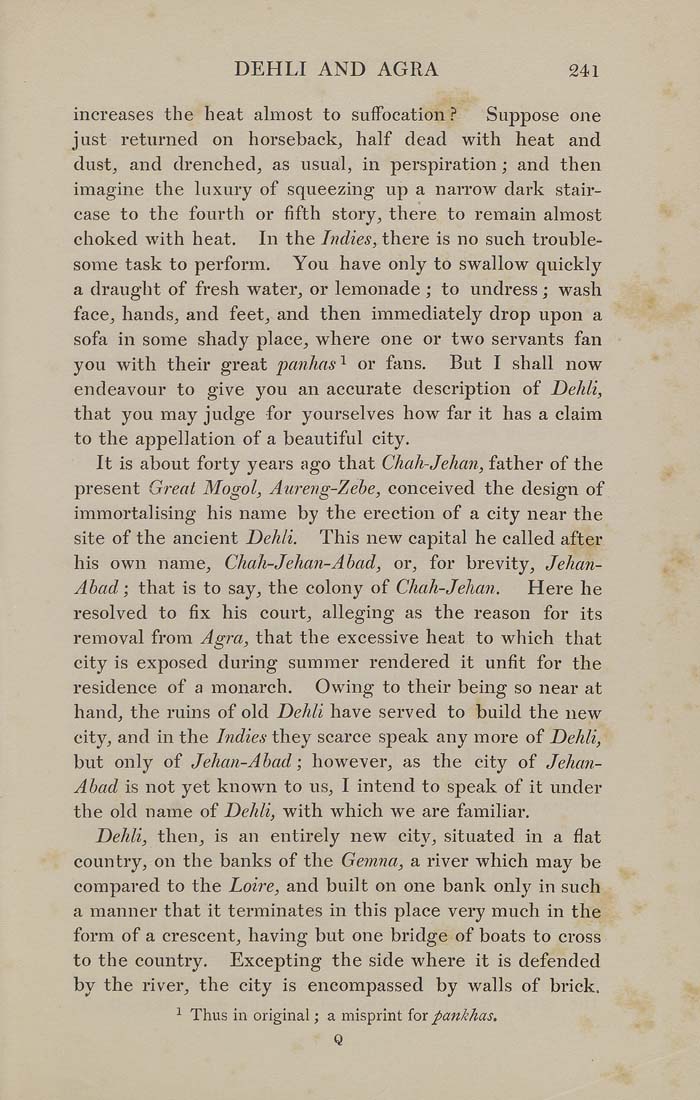DEHLI AND AGRA 241
increases the heat almost to suffocation ? Suppose one
just returned on horseback, half dead with heat and
dust, and drenched, as usual, in perspiration ; and then
imagine the luxury of squeezing up a naiTow dark stair¬
case to the fourth or fifth story, there to remain almost
choked with heat. In the Indies, there is no such trouble¬
some task to perform. You have only to swallow quickly
a draught of fresh water, or lemonade ; to undress; wash
face, hands, and feet, and then immediately drop upon a
sofa in some shady place, where one or two servants fan
you with their great panhas ^ or fans. But I shall now
endeavour to give you an accurate description of Dehli,
that you may judge for yourselves how far it has a claim
to the appellation of a beautiful city.
It is about forty years ago that Chah-Jehan, father of the
present Great Mogol, Aureng-Zebe, conceived the design of
immortalising his name by the erection of a city near the
site of the ancient Dehli. This new capital he called after
his own name, Chah-Jehan-Abad, or, for brevity, Jehan-
Abad; that is to say, the colony of Chah-Jehan. Here he
resolved to fix his court, alleging as the reason for its
removal from Agra, that the excessive heat to which that
city is exposed during summer rendered it unfit for the
residence of a monarch. Owing to their being so near at
hand, the ruins of old Dehli have served to build the new
city, and in the Indies they scarce speak any more of Dehli,
but only of Jehan-Abad; however, as the city of Jehan-
Abad is not yet known to us, I intend to speak of it under
the old name of Dehli, with which we are familiar.
Dehli, then, is an entirely new cit}', situated in a flat
country, on the banks of the Gemna, a river which may be
compared to the Loire, and built on one bank only in such
a manner that it terminates in this place very much in the
form of a crescent, having but one bridge of boats to cross
to the country. Excepting the side where it is defended
by the river, the city is encompassed by walls of brick.
^ Thus in original; a misprint for pankhas.
Q
|








